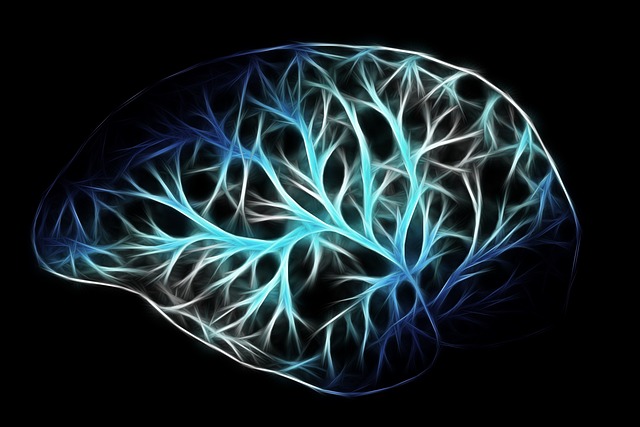What Is Wet Brain? Understanding Wernicke-Korsakoff Syndrome
Wet brain, also known as Wernicke-Korsakoff syndrome, is a severe condition caused by thiamine deficiency. This disorder primarily affects individuals with excessive alcohol use, resulting in damage to the central nervous system. Wet brain occurs in two stages: Wernicke encephalopathy and Korsakoff’s psychosis, which together lead to significant brain damage if left untreated.
In this article, we’ll explore what wet brain is, its symptoms, causes, stages, and treatment options. Understanding this condition is essential for preventing its progression and achieving lasting recovery.

What Is Wet Brain?
What is wet brain? It is a neurological disorder caused by chronic alcohol misuse and severe thiamine deficiencies. The body’s inability to absorb thiamine due to poor nutrition or alcohol addiction is the primary culprit.
Thiamine, or vitamin B1, plays a critical role in brain health. A deficiency can impair the gastrointestinal tract, affecting the body’s ability to convert nutrients into energy. This deficiency leads to symptoms like mental confusion, abnormal eye movements, and muscle coordination issues, which characterize the early stage of wet brain.
Stages of Wet Brain: Wernicke Encephalopathy and Korsakoff’s Psychosis
Wet brain occurs in two separate stages:
1. Wernicke Encephalopathy (Early Stage)
This is a medical emergency that presents as sudden mental confusion, difficulty with muscle coordination, and problems with eye movement. Early detection is crucial to prevent progression to the second stage.
2. Korsakoff’s Psychosis (Final Stages)
If left untreated, Wernicke encephalopathy develops into Korsakoff’s psychosis, characterized by severe memory rehabilitation therapies challenges, emotional apathy, and permanent brain damage. This stage often results in permanent memory loss and reduced life expectancy.
Causes of Wet Brain
Excessive Alcohol Use
Chronic alcohol consumption impairs the body’s ability to absorb thiamine and damages brain cells, contributing to the development of wet brain syndrome.
Poor Nutrition
A poor diet and nutritional deficiencies often accompany alcohol use disorder, increasing the risk of developing wet brain.
Prolonged Alcohol Misuse
A prolonged period of chronic alcohol misuse exacerbates the condition, making recovery more challenging.
Symptoms of Wet Brain Syndrome
Recognizing the symptoms is essential for early detection. Symptoms vary by stage but may include:
Mental confusion and forgetfulness
Abnormal eye movements or vision changes
Loss of muscle coordination
High blood pressure or irregular heart function
Emotional apathy and mood swings
Rapid weight loss due to eating disorders

Diagnosing Wet Brain
Diagnosis typically involves medical history, clinical examinations, and imaging techniques like magnetic resonance imaging (MRI). Blood tests may reveal thiamine deficiencies.
Treatment Options for Wet Brain Syndrome
Early Intervention
Early-stage treatment focuses on intravenous administration of thiamine to reverse symptoms. This is most effective during Wernicke encephalopathy.
Long-Term Management
Proper nutrition and oral supplements
Memory rehabilitation therapies
Managing withdrawal symptoms during alcohol withdrawal
Working with an addiction psychiatrist for addiction treatment
Preventing Wet Brain
To prevent wet brain, individuals must address alcohol addiction and improve dietary deficiencies. Early addiction treatment and education about alcohol use are critical.
Life Expectancy and Recovery
Life expectancy for individuals with wet brain depends on early detection and access to treatment. Without intervention, complications like alcoholic dementia or permanent brain damage are likely.
With proper care, many patients can regain control and achieve lasting recovery.
Conclusion
What is wet brain? It is a preventable but severe condition resulting from thiamine deficiency and excessive alcohol consumption. Understanding the stages of wet brain, recognizing symptoms, and seeking wet brain treatment early are essential for recovery.
If you or someone you know shows signs of wet brain syndrome, contact a medical professional immediately. Early intervention can save lives and improve outcomes. For more information, visit Revival Mental Health.
FAQ about Wet Brain Syndrome
What is wet brain?
Wet brain is a neurological disorder caused by severe thiamine deficiency. It is most commonly linked to excessive alcohol use and poor nutrition. The condition occurs in two stages: Wernicke encephalopathy and Korsakoff’s psychosis, which together lead to significant brain damage if untreated.
What are the main symptoms of wet brain syndrome?
Symptoms of wet brain include:
Mental confusion
Loss of muscle coordination
Abnormal eye movements
Rapid weight loss
Severe memory issues
These symptoms may worsen if left untreated, leading to permanent complications.
How does excessive alcohol consumption cause wet brain?
Excessive alcohol consumption interferes with the body’s ability to absorb thiamine from food. Over time, this leads to thiamine deficiency, damaging brain cells and causing wet brain syndrome. Chronic alcohol misuse and a poor diet are significant contributing factors.
Can wet brain be treated?
Yes, treatment is possible, especially in the early stages. It includes:
Intravenous administration of thiamine
Proper diet and oral supplements
Managing withdrawal symptoms
Memory therapies and long-term care for Korsakoff’s psychosis
Can wet brain be prevented?
Prevention involves addressing alcohol addiction, maintaining a balanced diet, and ensuring adequate intake of vitamin B1. Early intervention in cases of alcohol misuse can significantly reduce the risk of developing wet brain.
Visit SAMHSA for more information.





